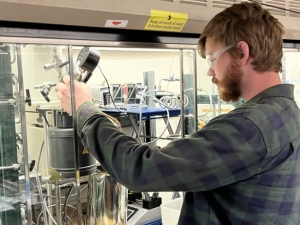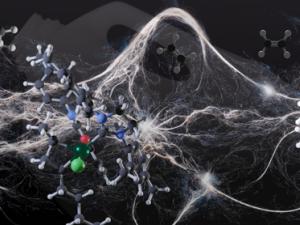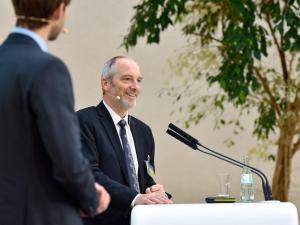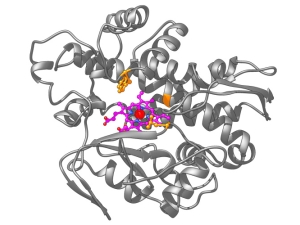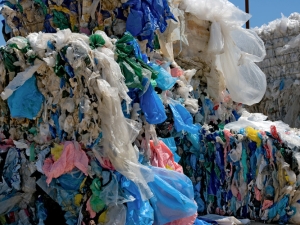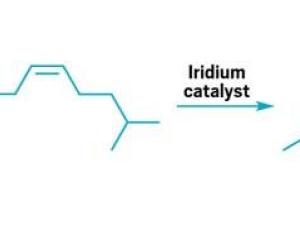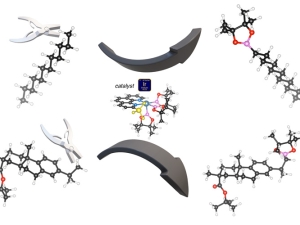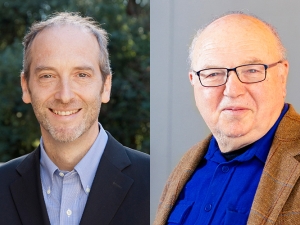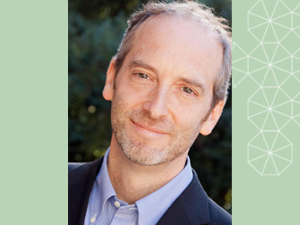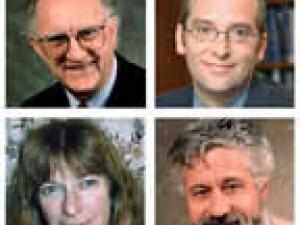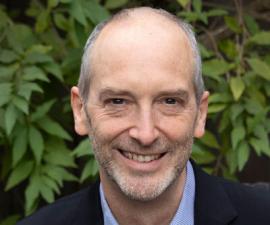

Research Bio
John Hartwig is the Henry Rapoport Chair in Organic Chemistry. Professor Hartwig's research group focuses on the discovery and understanding of new reactions of organic compounds catalyzed by transition metal complexes and artificial metalloenzymes. These findings result from a combination of organic synthesis, organometallic synthesis, protein design and evolution, and mechanistic analysis of catalytic systems.
The Hartwig group is currently investigating both small-molecule catalysts and artificial metalloenzymes for selective reactions of organic molecules. These reactions include the selective catalytic functionalization of alkanes and arenes, cross-couplings to form aryl and allyl amines and ethers, α-aryl and α-allyl carbonyl derivatives, methods for the fluorination and fluoroalkylation of arenes, additions to alkenes, methods to prepare chemicals and polymers from renewable chemical feedstocks, and hydrocarbyl functionalization reactions catalyzed by artificial metalloenzymes that combine the reactivity of transition-metal catalysts with the selectivity and evolutionary potential of enzymes. His group has conducted extensive mechanistic investigations of each of these types of reactions. Through these studies, they have revealed several new classes of organometallic reactions, including reductive eliminations, discrete compounds that functionalize alkanes, unusual three-coordinate arylpalladium complexes that are intermediates in cross-coupling, the first compounds that oxidatively add ammonia to form monomeric products, and the first transition-metal amido and alkoxo complexes that insert unactivated alkenes. In addition to these research activities he has authored a leading textbook in organometallic chemistry, titled Organotransition Metal Chemistry: From Bonding to Catalysis.
Research Expertise and Interest
inorganic chemistry, organometallic chemistry, catalysis, organic chemistry
In the News
12 Amazing UC Discoveries of 2024
Vaporizing Plastic Bags and Bottles Yields Gases to Make New, Recycled Plastics
Process Converts Polyethylene Bags, Plastics to Polymer Building Blocks
2022 Emanuel Merck Lectureship Awarded to John F. Hartwig
Synthetic biology moves into the realm of the unnatural
Upcycling: Turning plastic bags into adhesives
Road to chiral alkylamines paved with iridium
Scientists finally crack nature’s most common chemical bond
Researchers awarded Wolf Prizes in agriculture, chemistry
Professor John Hartwig awarded the 2019 Wolf Prize in Chemistry
Four UC Berkeley scientists elected to National Academy of Sciences
Four University of California, Berkeley, faculty members – physicists John Clarke and Bernard Sadoulet, chemist John Hartwig and ecologist Mary Power – have been elected members or foreign associates of the National Academy of Sciences, bringing UC Berkeley’s total NAS membership to 141.
Featured in the Media
"But new research from a team of chemists at UC Berkeley suggests a glimmer of hope when it comes to the thorny problem of recycling plastics — one that may allow us to have our cake, and potentially take a very small bite, too." This research was first featured on UC Berkeley News.

